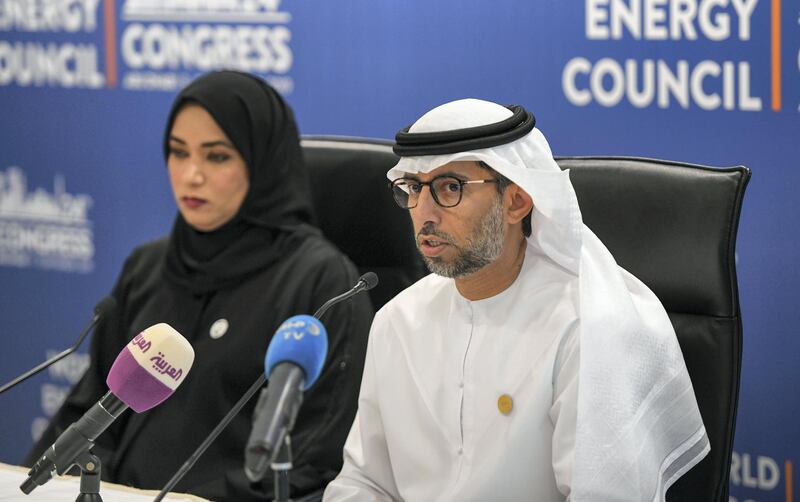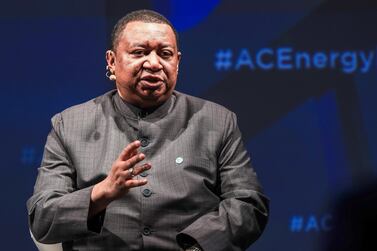Opec and non-member countries that are part of a global alliance to rebalance oil supply will finalise a charter in June to mark their evolution into a supergroup, the UAE Energy Minister said.
“When we meet in June hopefully we are going to be finalising [the charter]. The draft is almost finished for us here in the UAE. All of the countries have provided their comments. The draft is almost ready,” Suhail Al Mazrouei said on Wednesday.
Opec+, as the alliance led by sovereign producers Saudi Arabia and Russia is called, has been undertaking corrections in market supply since they joined forces in 2016 following a steep plunge in the price of oil. The 21 nations that are complying with the pact to slash output have been working on institutionalising their alliance into a supergroup as a counterweight to the United States, currently the world's largest oil producer.
"As far as the charter, it is ready and different countries have looked at it and we are ready to take it to the signature,” said Mr Al Mazrouei.
“When and where to sign it and who is signing it, those are the questions that they have to answer."
Opec announced at the annual meeting in Vienna in December it would look to sign the charter known as the Declaration of Co-operation during its extraordinary meeting in April. The meet was cancelled following a recommendation given by the alliance's joint ministerial monitoring committee earlier this week in the Azerbaijan capital Baku.
"The April dates were announced when we met in December," said Mr Al Mazrouei. "We all felt that nothing is going to be changing from now until mid-April to have an extraordinary meeting and bring all the ministers, knowing that in June we’re going to have our ordinary meeting."
The JMMC will meet next in the Saudi city of Jeddah in May, which Mr Al Mazrouei said was sufficient time for informing ministers on the status of the oil markets.
UAE, the fourth largest producer in the Middle East, will continue to maintain its compliance with Opec+ cuts at 100 per cent until the next meeting in June.
“We are committed to deliver a 100 per cent on our commitment. The following months are going to be driving that number to a 100 per cent,” he said.
The minister had tweeted earlier in the month that the country would “exceed” its requirements, if necessary.
Compliance among the alliance has not been uniform during the latest round of production cuts, where Opec and non-members pledged to collectively reduce 1.2 million barrels per day of oil for six months starting January.
Russia, the largest producer in Opec+, has been slow to cut production, while Iraq, Opec’s second-biggest member did not fully comply.
Mr Al Mazrouei said that Opec+ would continue to curb output as long as crude inventories were above the five-year average.
At their latest meeting, the alliance said compliance level among the producers had increased to 90 per cent in February, up from 83 per cent in January.
Opec and allies reacted under pressure from the US and rising production from the shale belt, with Saudi Arabia shouldering much of the production cut.
Opec's plan to rollback supply and consolidate further comes amid the growing dominance of independent US shale producers in the oil markets, who threaten the group's traditional dominance in supply and demand.








